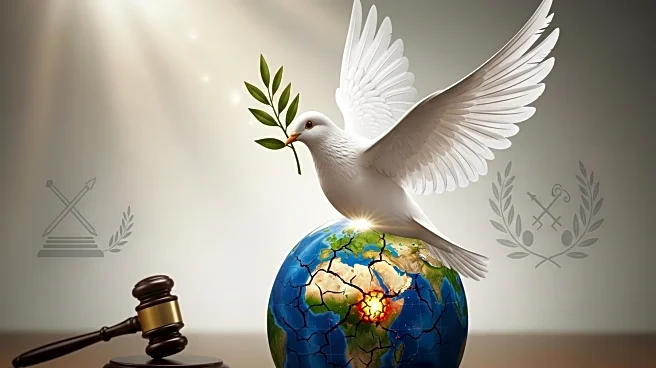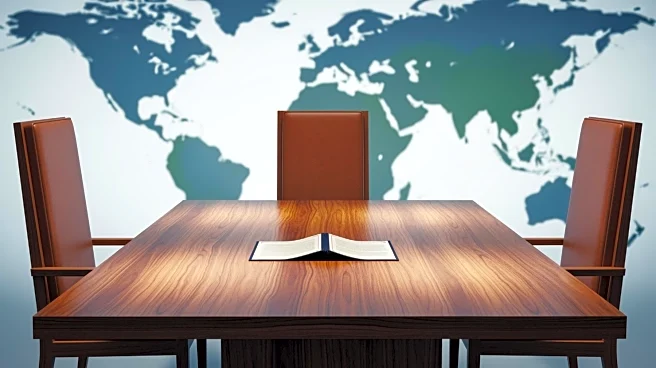What's Happening?
Michael Ratney, the former U.S. ambassador to Saudi Arabia, has commented on the recent Gaza ceasefire deal, emphasizing that it does not yet constitute peace. Ratney highlighted the necessity for a role for the Palestinian Authority or a pathway towards Palestinian statehood to prevent future conflicts. The ceasefire agreement between Israel and Hamas has temporarily paused hostilities, but significant issues remain unresolved, including the disarmament of Hamas and the governance of Gaza. The Israeli military has withdrawn from much of Gaza, yet troops continue to occupy parts of Rafah and Gaza’s northern towns. The future of the agreement is contingent upon addressing these unresolved issues, underscoring the fragility of the current truce.
Why It's Important?
The ceasefire deal is crucial as it temporarily halts the violence between Israel and Hamas, providing a respite for civilians in the region. However, the unresolved issues, such as Hamas's disarmament and Gaza's governance, pose significant challenges to achieving lasting peace. The involvement of the Palestinian Authority or the establishment of a pathway to Palestinian statehood could be pivotal in stabilizing the region and preventing future conflicts. The outcome of these negotiations could have profound implications for regional stability, impacting U.S. foreign policy and international relations in the Middle East.
What's Next?
The next steps involve addressing the contentious issues of Hamas's disarmament and the governance of Gaza. Stakeholders, including political leaders and international organizations, may need to engage in further negotiations to ensure a sustainable resolution. The role of the Palestinian Authority and the potential for Palestinian statehood will likely be central to these discussions. The international community, including the U.S., may play a significant role in facilitating dialogue and supporting efforts towards a lasting peace agreement.
Beyond the Headlines
The ceasefire agreement highlights broader ethical and legal dimensions, such as the right to self-determination and the complexities of international diplomacy. Long-term shifts could include changes in regional alliances and the potential for increased international involvement in Middle Eastern peace processes. The situation also raises questions about the effectiveness of ceasefires in conflict resolution and the role of external actors in mediating peace.








